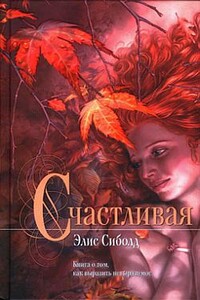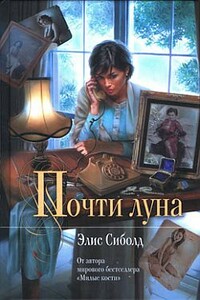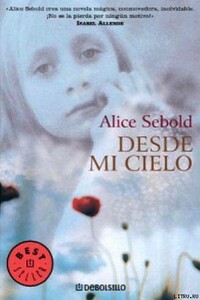“An aperitif is something you…” my mother began.
“Don’t correct me, Abigail.”
My grandmother got sloshed. She made Lindsey look like a clown or, as Grandma Lynn said herself, “a grade-A ’tute.” My father got what she called “finely drunkened.” The most amazing thing was that my mother went to bed and left the dirty dishes in the sink.
While everyone else slept, Lindsey stood at the mirror in the bathroom, looking at herself. She wiped off some of the blush, blotted her lips, and ran her fingers over the swollen, freshly plucked parts of her formerly bushy eyebrows. In the mirror she saw something different and so did I: an adult who could take care of herself. Under the makeup was the face she’d always known as her own, until very recently, when it had become the face that reminded people of me. With lip pencil and eyeliner, she now saw, the edges of her features were delineated, and they sat on her face like gems imported from some far-off place where the colors were richer than the colors in our house had ever been. It was true what our grandmother said – the makeup brought out the blue of her eyes. The plucking of the eyebrows changed the shape of her face. The blush highlighted the hollows beneath her cheekbones (“The hollows that could stand some more hollowing,” our grandmother pointed out). And her lips – she practiced her facial expressions. She pouted, she kissed, she smiled wide as if she too had had a cocktail, she looked down and pretended to pray like a good girl but cocked one eye up to see how she looked being good. She went to bed and slept on her back so as not to mess up her new face.
Mrs. Bethel Utemeyer was the only dead person my sister and I ever saw. She moved in with her son to our development when I was six and Lindsey five.
My mother said that she had lost part of her brain and that sometimes she left her son’s house and didn’t know where she was. She would often end up in our front yard, standing under the dogwood tree and looking out at the street as if waiting for a bus. My mother would sit her down in the kitchen and make tea for the two of them, and after she calmed her she would call her son’s house to tell them where she was. Sometimes no one was home and Mrs. Utemeyer would sit at our kitchen table and stare into the centerpiece for hours. She would be there when we came home from school. Sitting. She smiled at us. Often she called Lindsey “Natalie” and reached out to touch her hair.
When she died, her son encouraged my mother to bring Lindsey and me to the funeral. “My mother seemed to have a special fondness for your children,” he wrote.
“She didn’t even know my name, Mom,” Lindsey whined, as our mother buttoned up the infinite number of round buttons on Lindsey’s dress coat. Another impractical gift from Grandma Lynn, my mother thought.
“At least she called you a name,” I said.
It was after Easter, and a spring heat wave had set in that week. All but the most stubborn of that winter’s snow had seeped into the earth, and in the graveyard of the Utemeyers’ church snow clung to the base of the headstones, while, nearby, buttercup shoots were making their way up.
The Utemeyers’ church was fancy. “High Catholic,” my father had said in the car. Lindsey and I thought this was very funny. My father hadn’t wanted to come but my mother was so pregnant that she couldn’t drive. For the last few months of her pregnancy with Buckley she was unable to fit behind the wheel. She was so uncomfortable most of the time that we avoided being near her for fear we’d be thrown into servitude.
But her pregnancy allowed her to get out of what Lindsey and I couldn’t stop talking about for weeks and what I kept dreaming about for long after that: viewing the body. I could tell my father and mother didn’t want this to happen, but Mr. Utemeyer made beeline for the two of us when it was time to file past the casket. “Which one of you is the one she called Natalie?” he asked. We stared at him. I pointed to Lindsey.
“I’d like you to come say goodbye,” he said. He smelled of a perfume sweeter than what my mother sometimes wore, and the sting of it in my nose, and my sense of exclusion, made me want to cry. “You can come too,” he said to me, extending his hands so we would flank him in the aisle.







